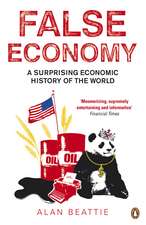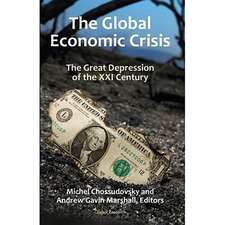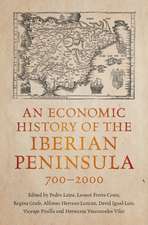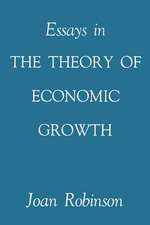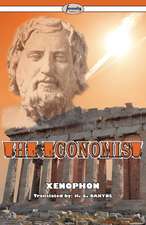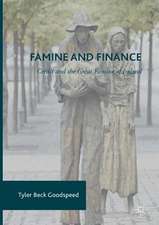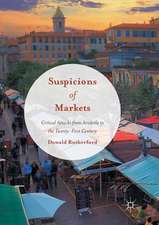The Invention of Scarcity: Malthus and the Margins of History: Yale Agrarian Studies Series
Autor Deborah Valenzeen Limba Engleză Hardback – 27 iun 2023
With the publication of Essay on the Principle of Population and its projection of food shortages in the face of ballooning populations, British theorist Thomas Robert Malthus secured a leading role in modern political and economic thought. In this startling new interpretation, Deborah Valenze reveals how canonical readings of Malthus fail to acknowledge his narrow understanding of what constitutes food production.
Valenze returns to the eighteenth-century contexts that generated his arguments, showing how Malthus mobilized a redemptive narrative of British historical development and dismissed the varied ways that people adapted to the challenges of subsistence needs. She uses history, anthropology, food studies, and animal studies to redirect our attention to the margins of Malthus’s essay, where activities such as hunting, gathering, herding, and gardening were rendered extraneous. She demonstrates how Malthus’s omissions and his subsequent canonization provided a rationale for colonial imposition of British agricultural models, regardless of environmental diversity.
By broadening our conception of human livelihoods, Valenze suggests pathways to resistance against the hegemony of Malthusian political economy. The Invention of Scarcity invites us to imagine a world where monoculture is in retreat and the margins are recentered as spaces of experimentation, nimbleness, and human flourishing.
Din seria Yale Agrarian Studies Series
-
 Preț: 115.71 lei
Preț: 115.71 lei -
 Preț: 311.48 lei
Preț: 311.48 lei -
 Preț: 136.13 lei
Preț: 136.13 lei -
 Preț: 171.78 lei
Preț: 171.78 lei -
 Preț: 258.09 lei
Preț: 258.09 lei -
 Preț: 214.69 lei
Preț: 214.69 lei -
 Preț: 194.63 lei
Preț: 194.63 lei -
 Preț: 230.87 lei
Preț: 230.87 lei -
 Preț: 386.45 lei
Preț: 386.45 lei -
 Preț: 336.24 lei
Preț: 336.24 lei -
 Preț: 272.69 lei
Preț: 272.69 lei -
 Preț: 274.28 lei
Preț: 274.28 lei -
 Preț: 434.01 lei
Preț: 434.01 lei -
 Preț: 400.83 lei
Preț: 400.83 lei - 23%
 Preț: 563.79 lei
Preț: 563.79 lei - 23%
 Preț: 438.96 lei
Preț: 438.96 lei - 23%
 Preț: 447.15 lei
Preț: 447.15 lei -
 Preț: 383.27 lei
Preț: 383.27 lei -
 Preț: 466.40 lei
Preț: 466.40 lei -
 Preț: 379.45 lei
Preț: 379.45 lei - 23%
 Preț: 433.11 lei
Preț: 433.11 lei - 23%
 Preț: 466.14 lei
Preț: 466.14 lei - 23%
 Preț: 567.05 lei
Preț: 567.05 lei - 23%
 Preț: 567.95 lei
Preț: 567.95 lei -
 Preț: 344.94 lei
Preț: 344.94 lei - 23%
 Preț: 445.99 lei
Preț: 445.99 lei - 23%
 Preț: 567.36 lei
Preț: 567.36 lei - 23%
 Preț: 567.95 lei
Preț: 567.95 lei -
 Preț: 485.82 lei
Preț: 485.82 lei - 23%
 Preț: 425.96 lei
Preț: 425.96 lei -
 Preț: 351.69 lei
Preț: 351.69 lei -
 Preț: 429.75 lei
Preț: 429.75 lei - 23%
 Preț: 430.48 lei
Preț: 430.48 lei -
 Preț: 335.18 lei
Preț: 335.18 lei -
 Preț: 378.48 lei
Preț: 378.48 lei - 23%
 Preț: 508.78 lei
Preț: 508.78 lei - 23%
 Preț: 430.48 lei
Preț: 430.48 lei - 23%
 Preț: 560.56 lei
Preț: 560.56 lei -
 Preț: 403.12 lei
Preț: 403.12 lei -
 Preț: 360.24 lei
Preț: 360.24 lei - 23%
 Preț: 444.18 lei
Preț: 444.18 lei - 23%
 Preț: 439.09 lei
Preț: 439.09 lei -
 Preț: 352.61 lei
Preț: 352.61 lei - 17%
 Preț: 210.78 lei
Preț: 210.78 lei - 17%
 Preț: 321.66 lei
Preț: 321.66 lei
Preț: 349.21 lei
Nou
Puncte Express: 524
Preț estimativ în valută:
66.82€ • 70.09$ • 55.63£
66.82€ • 70.09$ • 55.63£
Carte disponibilă
Livrare economică 11-25 martie
Livrare express 25 februarie-01 martie pentru 32.84 lei
Preluare comenzi: 021 569.72.76
Specificații
ISBN-13: 9780300246131
ISBN-10: 0300246137
Pagini: 280
Ilustrații: 9 b-w illus.
Dimensiuni: 140 x 216 x 21 mm
Greutate: 0.46 kg
Editura: Yale University Press
Colecția Yale University Press
Seria Yale Agrarian Studies Series
ISBN-10: 0300246137
Pagini: 280
Ilustrații: 9 b-w illus.
Dimensiuni: 140 x 216 x 21 mm
Greutate: 0.46 kg
Editura: Yale University Press
Colecția Yale University Press
Seria Yale Agrarian Studies Series
Recenzii
“Importantly, Valenze shows in perhaps the most impressive part of her book that Malthus knew about the alternative strategies of subsistence on the margins, but chose to ignore them.”—Robert Mayhew, Times Literary Supplement
“Valenze observes that ‘Malthus’s zombie continues to stalk our efforts to think about food and justice.’ . . . [She] points out that . . . environmental damage, overintensive extraction, and accumulation of greenhouse gases are not explained by population growth; rather, they result from methods of production and distribution that serve the dominion of the fossil fuel industry and the concentration of wealth.”—Scott R. MacKenzie, Los Angeles Review of Books
“This is a searching, serious, and thoroughly coherent critique of Malthusian thought and one of the most interesting and energizing books that I have read in recent years.”—Steve Hindle, author of On the Parish? The Micro-Politics of Poor Relief in Rural England, c. 1550–1750
“Moving beyond existing scholarship, Deborah Valenze offers an engaging and convincing new perspective on Malthus.”—Timothy Alborn, author of All That Glittered: Britain’s Most Precious Metal from Adam Smith to the Gold Rush
“The Invention of Scarcity is a provocative account of how deeply held foundational beliefs made a very intelligent man unable to see his world as it was.”—Thomas W. Laqueur, author of The Work of the Dead: A Cultural History of Mortal Remains
“The consequences of Thomas Malthus’s thesis about populations and scarcity have been—and still are—devastating. Deborah Valenze brilliantly reveals what Malthus failed to see, especially about the resiliency of rural communities past and present.”—Samuel Moyn, author of Not Enough: Human Rights in an Unequal World
“Valenze’s brilliant unpacking of the racist assumptions of Malthus’ essay on population will go a long way towards laying to rest the ghost of Malthus that still haunts debates on human numbers and planetary hunger. The Invention of Scarcity is an exemplary exercise in decolonizing imperial political economy.”—Dipesh Chakrabarty, author of One Planet, Many Worlds: The Climate Parallax
“Valenze observes that ‘Malthus’s zombie continues to stalk our efforts to think about food and justice.’ . . . [She] points out that . . . environmental damage, overintensive extraction, and accumulation of greenhouse gases are not explained by population growth; rather, they result from methods of production and distribution that serve the dominion of the fossil fuel industry and the concentration of wealth.”—Scott R. MacKenzie, Los Angeles Review of Books
“This is a searching, serious, and thoroughly coherent critique of Malthusian thought and one of the most interesting and energizing books that I have read in recent years.”—Steve Hindle, author of On the Parish? The Micro-Politics of Poor Relief in Rural England, c. 1550–1750
“Moving beyond existing scholarship, Deborah Valenze offers an engaging and convincing new perspective on Malthus.”—Timothy Alborn, author of All That Glittered: Britain’s Most Precious Metal from Adam Smith to the Gold Rush
“The Invention of Scarcity is a provocative account of how deeply held foundational beliefs made a very intelligent man unable to see his world as it was.”—Thomas W. Laqueur, author of The Work of the Dead: A Cultural History of Mortal Remains
“The consequences of Thomas Malthus’s thesis about populations and scarcity have been—and still are—devastating. Deborah Valenze brilliantly reveals what Malthus failed to see, especially about the resiliency of rural communities past and present.”—Samuel Moyn, author of Not Enough: Human Rights in an Unequal World
“Valenze’s brilliant unpacking of the racist assumptions of Malthus’ essay on population will go a long way towards laying to rest the ghost of Malthus that still haunts debates on human numbers and planetary hunger. The Invention of Scarcity is an exemplary exercise in decolonizing imperial political economy.”—Dipesh Chakrabarty, author of One Planet, Many Worlds: The Climate Parallax
Notă biografică
Deborah Valenze is the Ann Whitney Olin Professor of History at Barnard College. A recipient of numerous fellowships, she has written four previous books on British culture and economic life. She lives in Cambridge, MA, and New York City.
Descriere
A radical new reading of eighteenth-century British theorist Thomas Robert Malthus, which recovers diverse ideas about subsistence production and environments later eclipsed by classical economics


